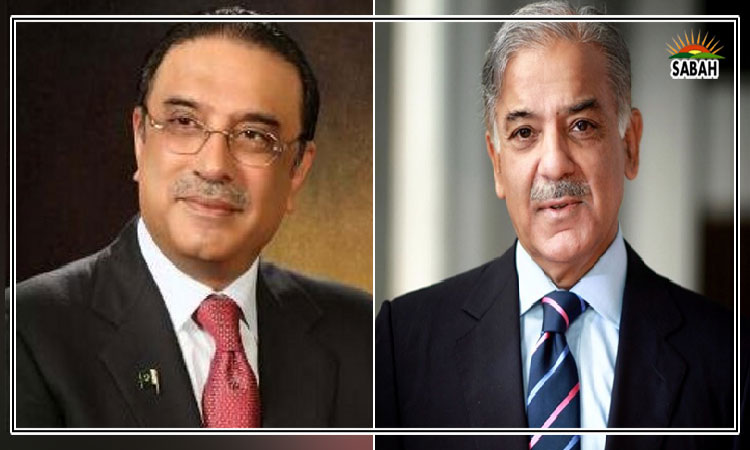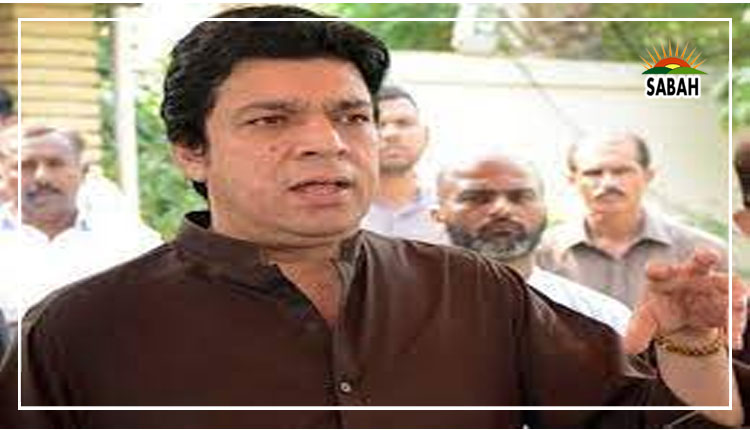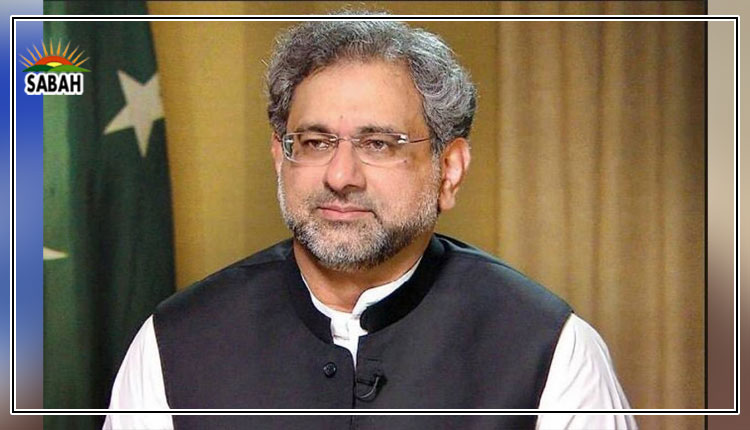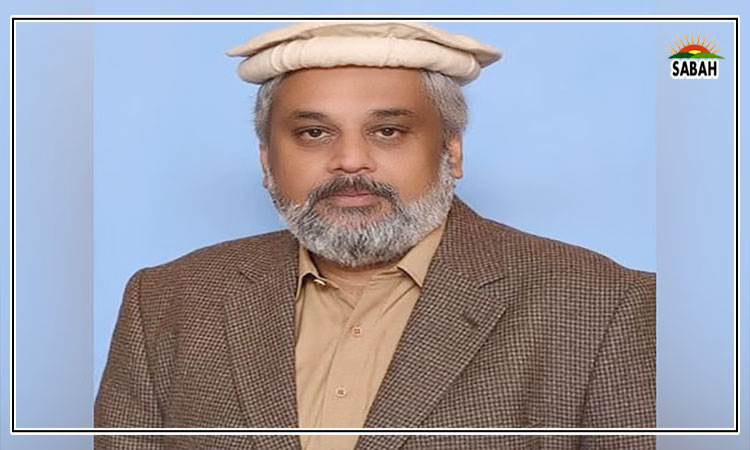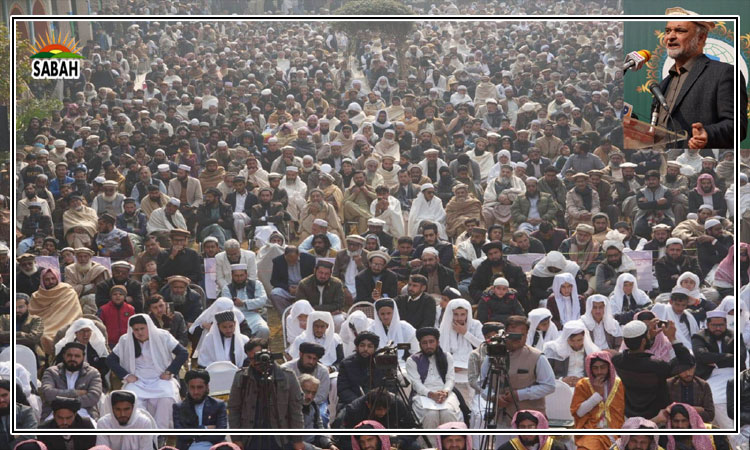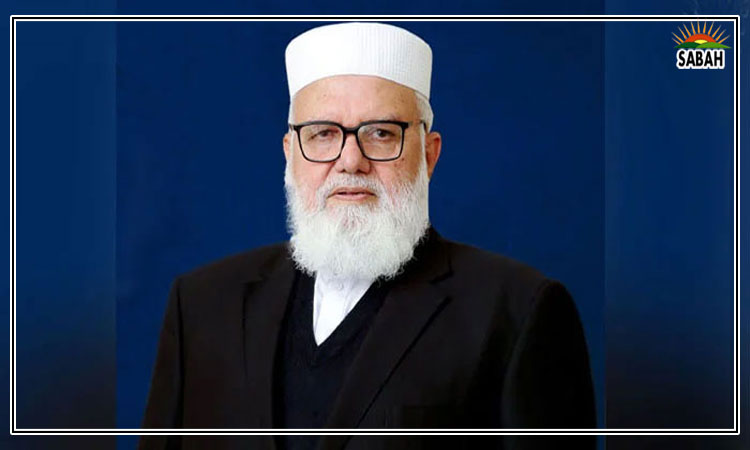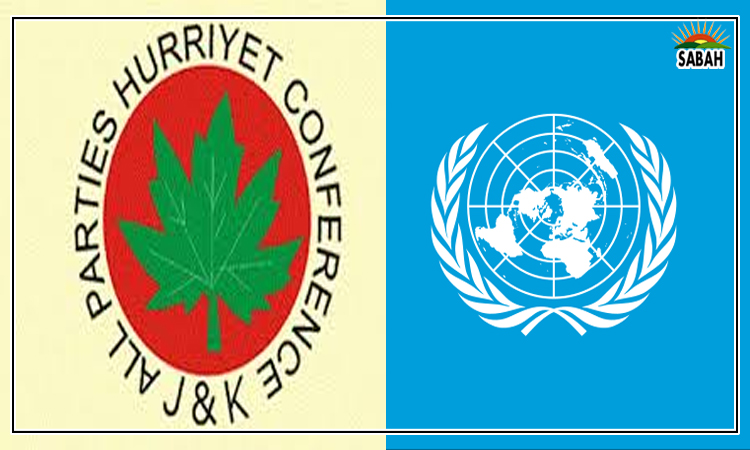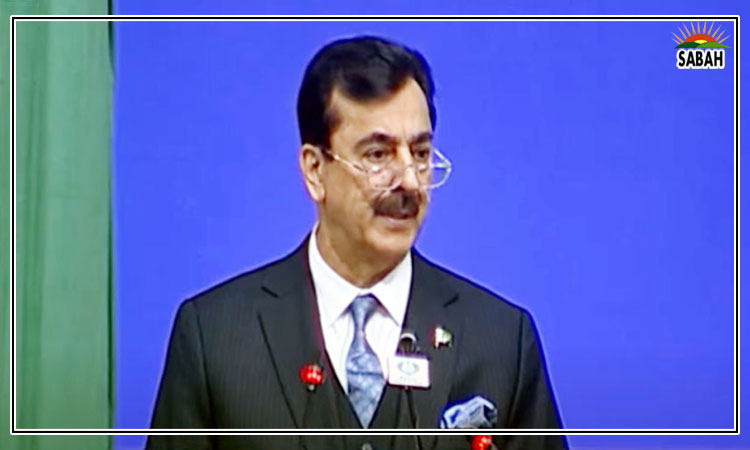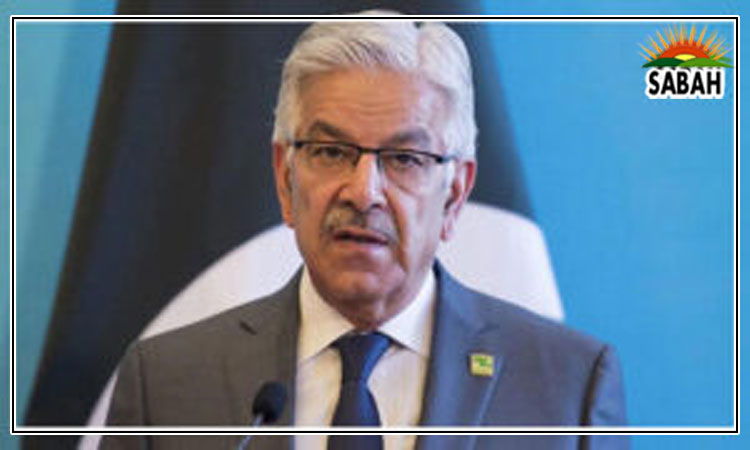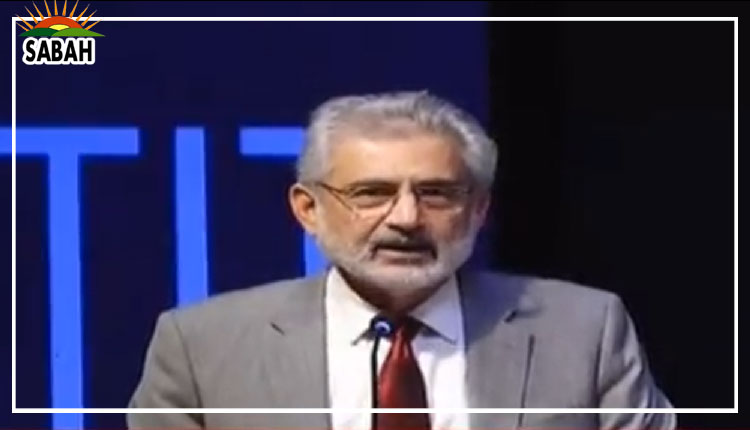Justice Qazi Faez Isa urges the public to criticise individuals instead of institutions
LAHORE, Oct 22 (SABAH): The Supreme Court’s senior most judge Justice Qazi Faez Isa urged the public to criticise individuals instead of institutions in his speech on Saturday at this year’s Asma Jahangir Conference taking place in Lahore.
“I would only request that you don’t judge us as an institution because there is good in the institution; there is also bad in the institution,” he said while reminding the attendees that as the public, they are the ones who can judge the judges “individually”.
Justice Qazi Faez Isa emphasised: “Judge us as judges, condemn me as a judge, do not condemn the Supreme Court.” He added that Pakistan needed the judiciary, the executive, the military and more than anything else, it needed to be led by the elected representatives of the people. “Pakistan needs democracy,” he said.
Speaking in a “personal capacity”, Justice Isa welcomed criticism, as he would never hold anyone for contempt of court, however, he reiterated people avoid criticising the institution because without an institution, “a country implodes, it breaks apart […] practically”.
He highlighted the importance of the public’s role after talking about the “tumultuous” political history of Pakistan and listing the various methods through which prime ministers in the country’s history have been assassinated, removed, and hanged — including Liaquat Ali Khan, Khwaja Nazimuddin and Zulfikar Ali Bhutto.
The judge further went on to list important acronyms that have often been mentioned in politics recently — like the JIT (joint investigation team) and PCO (Provisional Constitutional Order) — and suggested one of his own: the CMDC, or the Citizen’s Monitor of Democracy and Constitution, that would give the public the right to “monitor those whose salaries… [and] pensions” they pay.
He further suggested that the CMDC should have “a black, a grey and a white list”. He first mentioned individuals affiliated with his own institution, the judiciary.
“In my personal opinion, speaking as a student of law — not as a judge, but as a student of history and politics — I would put in the black list: Justice Mohammad Munir, Justice Anwarul Haq and Justice Irshad Hassan Khan.”
In the “white list”, he suggested the inclusion of Justice Constantine, Justice Achal and Justice Mohammad Baksh.
Talking about part of the executive, he said he would put in the “black list” General Ayub Khan, General Ziaul Haq and General Pervez Musharaf.
He further added: “I would put in the white list: two white Englishmen… the first Commander in Chief of Pakistan Army, General Sir Frank Walter Messervy […] I would put [in the list] the second Commander in Chief of Pakistan Army, General Sir Douglas Gracey.“
The justice gave examples of “glorious tradition” from Islamic history of notable figures not giving in to pressure and reminded judges, “If you are pressurised and you sell the country, the history will remember you.”
Making allusions to the former prime minister Mian Muhammad Nawaz Sharif’s disqualification by Supreme Court of Pakistan in 2017, Justice Qazi Faez Isa said a prime minister was declared unfit for any public office because he refused to take a salary from his son.
“I will not comment on the decision, but it reads that you (Nawaz Sharif) did not declare the salary you were to receive. By not declaring that salary, you have misrepresented the facts before the court that’s why you were not a good Muslim,” Isa said.
Justice Qazi Faez Isa said a prime minister was removed for non-disclosure of notional income which he never received by Supreme Court of Pakistan, adding that I am not going to comment about this judgment, I am just saying what it says, it says Mr. Prime Minister you entitled to receive salary, you did not receive it and did not disclose it so you are not a good Muslim so we send you home, that is what the judgment says, I won’t say if I agree or not, anyway that it says. I note how it was done, before that proceeded by something JIT, joint investigation team, in all the laws of Pakistan you will find it in only at one place, that is the Anti-Terrorism Act.
The justice said that Pakistan’s coming into being was unprecedented in the world. “Pakistan was created in a democratic way.”
Justice Isa said the first attack on democracy was perpetrated by a bureaucrat Ghulam Mohammad.
“The constitution clearly lays down the distribution of authority for different institutions and the judiciary is one of them.”
The SC judge said Zulfiqar Ali Bhutto was tried by a civil court, not a military court. “I was on the bench that took up the case of establishment of military courts.” “I was the most junior judge and a part of the minority decision.”
“Pakistan needs both judiciary and executive and it also needs the military as a part of the executive; however, what it needs the most is a [democratic] peoples-elected government.”
He said removing democracy from Pakistan would be tantamount to stabbing the country in the back and treason. “Everyone should respect the constitution.”
Moving ahead, Justice Isa said the third attack on democracy came from General Ziaul Haq. “The constitution was torn apart, but a petition against the act was declared admissible.”
General Pervez Musharraf breached the constitution fourth time in the history of the nation, and the Supreme Court even authorised a salaried government servant to amend the constitution.
The justice said criticism should be targeted at the one who abused his/her powers and not the institution. “Crticise the general by name who breached the constitution and not the armed forces of Pakistan; disagree with me as a judge, but do not condemn the Supreme Court.” he said.
“Under Article 5, all of us including me are bound to abide by the constitution,” he added.
Justice Isa said that if a citizen monitoring institution for democracy was established, it could monitor those getting salaries and pensions from the government.
He said Ayub Khan had asked for a plot from the army chief. Later, the army chief was removed and the politics revolving around plots started. “Politics of plots is very famous in Pakistan,” he said. Justice Isa said that he will not point fingers at any institutions.
“I was a chief justice at the Balochistan High Court for five years and no body called me to ask anything so if anybody tells there is pressure, they are not suit their oath of office, if someone says we have been pressured by someone, if you can’t handle the heat in the kitchen then get out” he remarked.
He recalled an interview with a chief justice and said that it had brought tears to his eyes. “That chief justice had said that the verdict of the Zulfiqar Ali Bhutto case was given under pressure from Ziaul Haq,” said Justice Isa. He further said that the Constitution is what keeps the country united.


